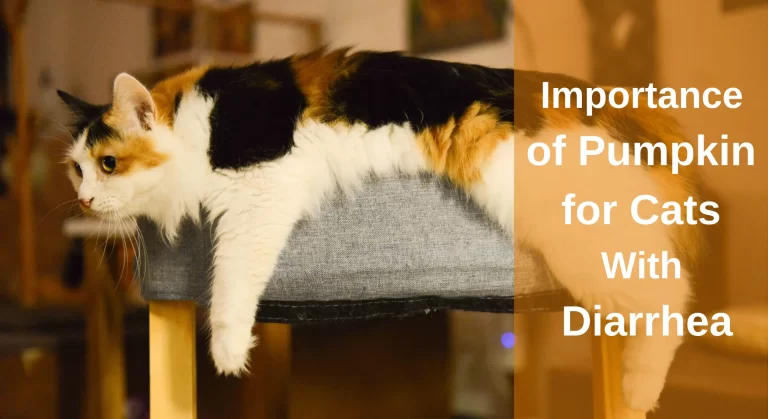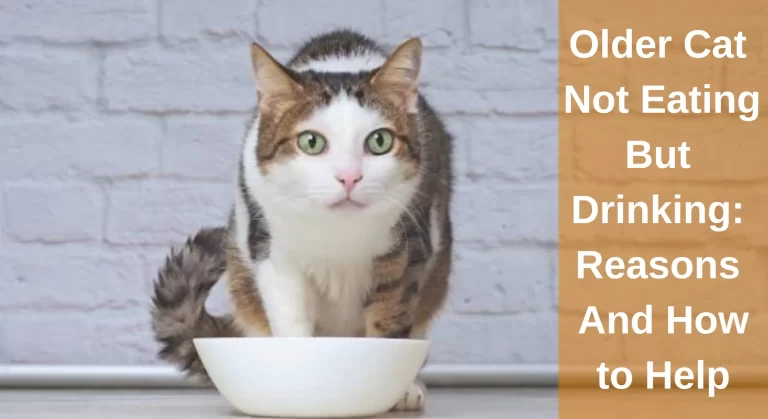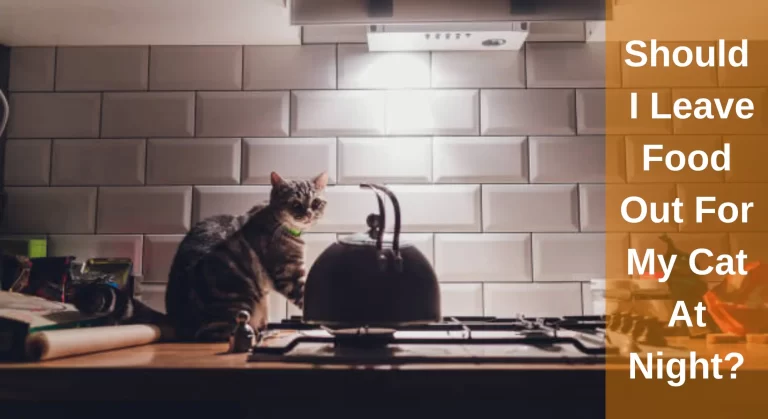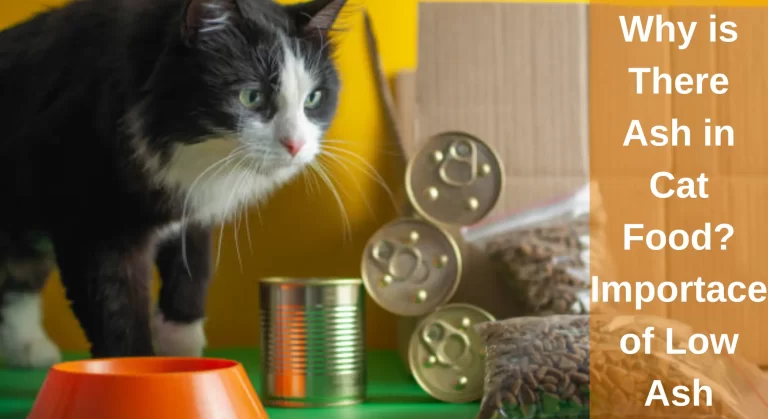Can Cats Eat Flour? What You Need To Know
It’s unlikely that your cat is looking for food by poking its nose into a flour container. Yet, you may become worried if your cats consume flour or any flour-made product; what will happen then? Although, some cat-friendly items like turkey or pork are breaded with flour. But is flour safe for felines?
Although cats can consume flour, this does not imply that they need to. Although a taste or two occasionally won’t affect your cat, you can’t replace flour-based snacks with your cat’s usual food. Flour toxicity depends on the variety of flours, some are toxic to cats while others aren’t, but still, cats can’t consume it frequently.
Nowadays, a broad variety of flour and its substitutes are available in the market, which might confuse you to select the best for your cat.
No need to panic! In this article, I will explain the flour types that are suitable and harmful for felines to consume. We’ll further discuss what to do if your cat eats flour, the harms of raw dough, and felines’ grain allergies.
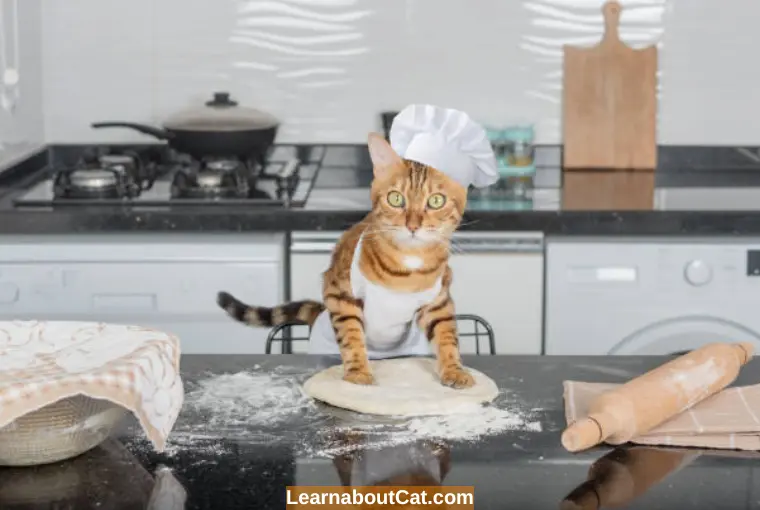
Can Cats Eat Flour?
Cats can eat flour without becoming sick and normally have little difficulty absorbing it. Whether your cat consumes raw flour or flour that has been cooked into dishes doesn’t really matter. It’s crucial to give your cats carbs moderately.
Cats require no more than 10% of their food to be made up of carbohydrates because they acquire most of their nourishment from fatty foods. As devoted carnivores, cats benefit from foods packed with protein and fat than carbs.
However, cats may consume flour and goods made from flour without any problems. But, you must only occasionally give your feline food or items containing flour as snacks rather than regularly.
In addition, if you decide to let your feline eat flour, it’s important not to give them excessively as it may result in gaining weight and other undesirable health problems. So, be careful how much flour you give to your cat.
You Might Like to Find Out: Can Cats Eat Wheat?
What Kind of Flour Can and Can’t Cat Eat?
Cat flour comes in a wide variety; therefore, choosing the right kind for your feline is important. The nutritional benefit of each type of flour varies, with some being nutrient-denser than others. Below we’ve mentioned some varieties of dangerous and safe flours for cats:
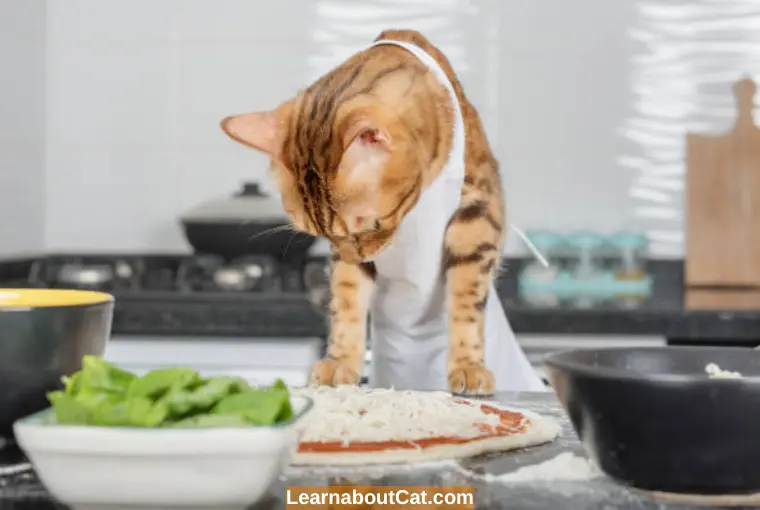
1. White Flour
White flour, also known as all-purpose flour, includes gluten and makes puff pastry, chunkier bread, pizza dough, and delectable cakes.
As you know, most felines are sensitive to digesting gluten, so you mustn’t give this to your cat because they may face trouble digesting this kind of protein; if they have trouble, they’re likely to experience an allergic reaction.
Although white flour is sometimes okay for felines to consume, it isn’t the healthiest choice. Most of the nutrient-dense sections of the wheat are eliminated during the processing of white flour. So, you must avoid white flour by diabetic cats as it may elevate their blood glucose levels.
2. Whole Wheat Flour
Whole-wheat flatbread, biscuits, spaghetti, and brown bread are the greatest flour-based snacks you can sometimes give your cat.
The term occasionally is stressed! Since it still includes wheat germ and bran, this flour is more nutrient-dense than all-purpose flour.
Selenium, magnesium, iron, and copper are vital minerals extracted from premium whole wheat flour and are beneficial for cats.
Since wheat is not poisonous to cats, your feline can easily consume goods made from wheat. Moreover, wheat contains a lot of fiber, which can assist in maintaining your cat’s gastrointestinal balance.
Intresting Reading: Can Cats Eat Biscuits?
3. Rice Flour
Rice flour is safe for cats to eat. In fact, whenever a cat has digestive problems, it’s normal practice to combine cooked rice and cat chow.
However, brown rice flour shouldn’t be given to cats because it contains more nutrients and fiber that are hard to digest and cause cats’ stomachs to become upset.
Yet, white rice flour is another fantastic choice since it gives your cat the carbohydrates she requires to live and grow without gluten from wheat or cereals. Lysine, which aids in preventing furballs from cleaning your cat, is also included in this flour.
4. Corn Flour
Although corn is acceptable for cats to consume, it offers very little in the way of nourishment. It is regarded as a low-cost carbohydrate substitute frequently used in cat meals of poor quality.
5. Almond Flour
Almond flour is a secure substitute for felines having grain sensitivities or gluten sensitivity, even if pure almonds are unsafe for cats. Whole almonds are bad for cats as they’re difficult to break down and may become trapped in their jaws.
Minerals, flavonoids, and vitamin E are all abundant in almond flour. It is also a rich source of beneficial nutrients and low in carbs.
6. Chickpeas Flour
Dog food frequently contains chickpea flour, but cats shouldn’t consume it. Due to their high fiber content, chickpeas or other beans can be challenging for cats to absorb. They may, in exceptional cases, lead to serious flatulence.
Whole rye: Rye has a lower carb level per meal and a relatively increased protein concentration than normal whole wheat. To create healthier cat recipes, it is mixed with different flour mixtures.
7. Self-Rising Flour
This type of flour includes excess sodium and baking powder as leavening. The basic flour has little protein than cake flour but is otherwise identical.
It usually contains 8-9% protein; therefore, it can’t be used for felines as it may cause gastrointestinal issues or high blood pressure.
The Danger of Uncooked Flour Dough
Unfortunately, raw flour dough might be fatal to your cat. This isn’t due to the fact that it’s harmful; rather, the reason is that it keeps rising in the tummy. If you’ve ever prepared anything with dough, you understand that the dough self-rises when you allow it to sit.
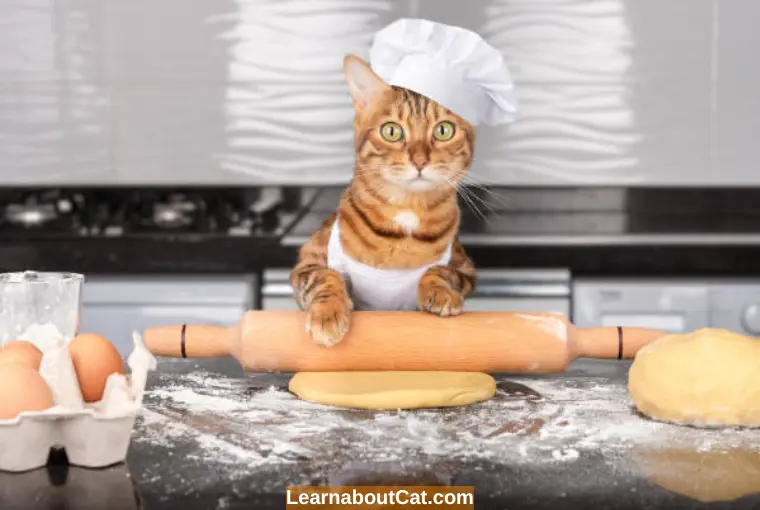
This is so that CO2 can be released when the fermentation happens in the dough, which is activated by the action of yeast on sugar. With a lot of air pockets, it becomes sticky.
So, when a cat consumes uncooked dough, it will keep rising in the gut, releasing gases into the cat’s digestive system; due to this, Bloating, also referred to as gastric dilation, bowel obstructions may occur happen. It’s a dangerous and frequently fatal disorder.
Moreover, alcohol and CO2 produced by activated yeast in uncooked dough can lead to severe alcohol poisoning as well as breathing and neurological problems.
Your favorite cat may need surgery to be fixed if the damage is serious. In case your cat consumed raw bread, keep an eye out for the following signs:
- Puking or burping
- Retching
- Salivating excessively
- Fast heartbeat
- Sluggishness
If your feline ate even a small piece of raw dough, don’t wait to take them to the clinic.
What Should I Do if My Cat Eats Flour?
If your feline consumes flour, there isn’t much you can do as they won’t react negatively to it. The only problem your feline might encounter with flour is when it is consumed in excess. Such food will cause a deficiency in nutrition and, likely cat will become overweight.
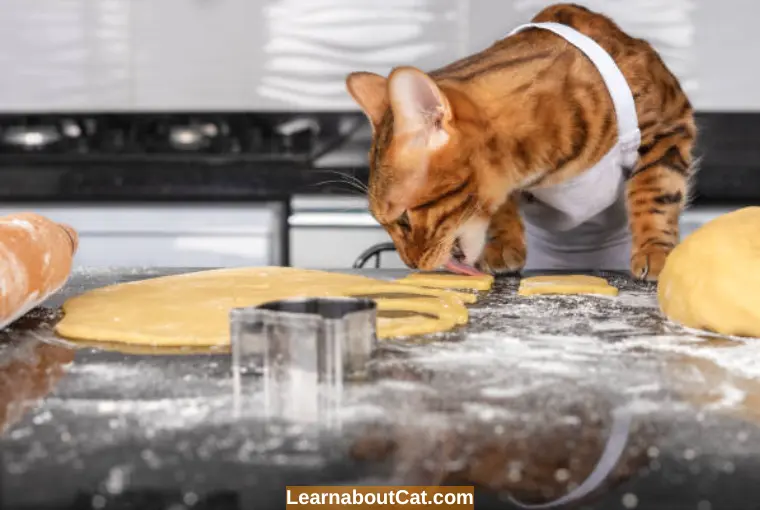
There is no reason to be concerned about as much as you limit your cat’s flour consumption. If left unattended, cats may consider flour to be as delectable as us, which could lead to issues.
Cats must be fed cat food, and snacks provided to felines on special events should be made with nutritious ingredients. Hence, cats have no problem-consuming flour instead of eating it in large quantities.
Cats and Grain Allergies
Grains are one of the most frequent reasons for allergies, in contrast to diet-associated issues. Detailed research on grain-free meals demonstrates that they offer no actual advantages. In reality, grains fall short of providing cats with the critical nutrients they need, including:
- Vitamin b1
- Iron
- Calcium
- Vitamin b12
A long-term lack of these fundamental components can result in hypertrophic cardiomyopathy, a disorder that can induce feline cardiovascular disease. Grain allergies in felines are possible but rare.
Because of the high fiber ratio, wheat flour, cornstarch flour, and some other grains may be difficult for your cat to absorb. Try to keep an eye out for the aforementioned signs of allergies if you think your feline may have a grain allergic response:
- Skin redness
- Hair loss
- Skin irritation
- Overgrooming because of irritated skin
- Persistent ear and skin problems
- Digestive problems
- Nausea
- Dysentery
Consulting with your veterinarians is the correct method to determine if your feline has a food intolerance.
Check Out: Pros and Cons of Grain Free Diet for Cats – Is Grain
Frequently Asked Questions
Are cats allergic to flour?
Yes, flour can be allergic to cats, but it depends on its variety, such as cornmeal flour, almond flour, self-rising flour, etc. You must take your cat to the vet to see which flour is best for your cat and which can cause allergies.
Is wheat flour OK for cats?
In moderation, wheat flour isn’t harmful to cats but doesn’t offer any nutritious advantages. Cats must consume food that is rich in proteins and free of carbohydrates because they’re carnivores. Although grains like wheat do appear in certain marketed cat meals, they are often used as a form of carbs rather than a major nutritional component.
Why is my cat obsessed with flour?
Although it is rare for cats to become fascinated with flour, certain felines may be captivated by the flavor or texture of flour. Cats are inherently adventurous and like to explore their surroundings, so a dry, powdered substance like flour can appeal to them.
Can cats eat dough?
Cats shouldn’t consume dough because of yeast, which raises the dough in the gut and perhaps harms the digestive system. Thus, eating dough can be harmful to cats. Moreover, the intestines might ferment the uncooked dough, which can result in potentially fatal alcohol intoxication.
What grains can cats eat?
Even though cats are carnivores, certain marketed cat meals include grains as a resource of carbs. Oat, rice, and barley are grains regarded as safe in tiny portions for cats to consume. You must consult with your veterinarian should always be consulted before adding new items to your cat’s menu because some cats might be sensitive to or allergic to grains.
Wrapping Up!
You shouldn’t constantly give flour to your felines. Cats, though, are unaffected by it. Based on the kind of floury meal in concern, it cannot be particularly simple to absorb. Yet, the majority of flour varieties don’t provide a lot of nutrients. Cats should consume them moderately or completely avoid specific types, like corn flour.
Also, uncooked dough is more hazardous than uncooked flour because it may include activated yeast, which is extremely poisonous to cats.
Moreover, your feline might be sensitive to different types of grains, and if you add grains to their diet, they may have grains allergies. So, before changing your pet’s diet, if you’re experiencing any worries regarding allergies to grains, consult your veterinarian to identify the underlying cause.
Related Posts:
Who is Isabella?
My name is Isabella, and I am a dedicated and knowledgeable cat enthusiast. With years of experience caring for cats and a deep love for felines, I made a mission to help other cat lovers navigate the challenges of cat ownership.

![Can Cats Eat Cooked Chicken Bones? Cooked Vs. Raw [Explained]](https://learnaboutcat.com/wp-content/uploads/2022/10/Can-Cats-Eat-Cooked-Chicken-Bones-768x419.webp)
![Why Do Cats Like Running Water? [Top Reasons]](https://learnaboutcat.com/wp-content/uploads/2022/06/Why-Do-Cats-Like-Running-Water-768x419.webp)
